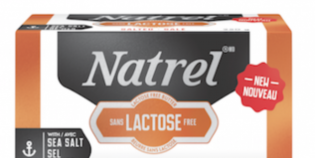When Rosanne Tripathy and her sister opened their specialty doughnut shop in Calgary more than five years ago, there weren’t many fried-dough slingers selling upscale confections with new-fangled flavours like creme brulee or s’mores.
“The market was void of anything similar,” said Tripathy, co-founder of Jelly Modern Doughnuts.
Since then, the company’s opened a second Calgary shop and operates a food truck, as well as two Toronto outlets—with eyes on Vancouver, Edmonton and Saskatoon for possible future expansion.
But what Tripathy claims on her site is “the country’s original gourmet doughnut bakery cafe” is now just one among myriad artisanal shops serving up the tasty pastries to Canadians in what has recently become an increasingly crowded field.
Last year, Canadians ate more than 521 million doughnuts, according to NPD Group, a market information and advisory service that collects data daily from a panel of 130,000 Canadians on their restaurant eating habits.
That’s 10% more than the previous year, said Robert Carter, the company’s executive director of food service.
Most of the growth comes from the country’s market leader in doughnuts, Tim Hortons, he said. But, Carter suspected smaller players, like Jelly Modern Doughnuts, have also likely experienced double-digit growth.
He chalked up part of the food item’s rising popularity to something fairly counter-intuitive: a widening consumer interest in healthy eating. As people are increasingly drawn to eating higher-quality foods with greater health benefits, he said, they’re allowing themselves more leeway for quality sinful snacks including the doughnut.
Canadians have also scaled back on eating out, especially for full-course meals like dinner, Carter added. Instead, they’re choosing to spend their restaurant dollars on breakfast and snacks, he said, meaning more of their money is going toward sweet treats and baked goods.
Yet another boost for the doughnut is our love affair with caffeine. Canadians drink more than three billion cups of java a year, Carter said—and that’s not including home-brewed beans.
“Obviously, the best compliment to that is a baked good,” he said, adding that a strong coffee program is key to not losing market share to other eateries that serve both indulgences.
Susan Hamer, who opened SuzyQ Doughnuts in Ottawa back in February 2012, agreed it was a perfect match.
Serving up coffee with a doughnut, she said, was part of the country’s culture—though her shop offers a unique twist on the classic pairing by selling a Finnish-inspired doughnut. The hand-rolled and hand-cut goodies come in an irregular shape, with lots of cardamom spice and intensely flavoured glazes.
That’s a smart move, according to Carter. Canadians—especially millennials, who are considered flightier than their generational predecessors when it comes to brand loyalty—are drawn to innovative products, he said, and successful doughnut bakers have managed to create interesting flavour concoctions.
That’s why Vanessa Baudanza, co-founder of The Rolling Pin in Toronto, said she wasn’t worried about opening her speciality store in June 2014 as she felt confident customers would travel from all corners of the city to taste her unique products.
The upscale shop is best known for its small syringes filled with flavours like caramel or espresso that top some of its doughnuts, letting customers inject the rich fillings themselves.
Baudanza continues to dream up creations like the Cadbury-Creme-Egg-stuffed doughnut (served only around Easter time) and a carnival-inspired version topped with deep-fried mini Mars bars.
“Nothing’s more classic than a doughnut,” said Baudanza. “So if you can spruce it up and jazz it up and make it really unique and wonderful, then—of course—everyone’s going to want to come and grab one.”
Keeping up the pace of innovation would be key to these stores’ survival and keeping millennials coming through their doors, Carter said.
“For these smaller players in particular, they’ll just need to leave a constant message of innovation and excitement to attract the largest restaurant consumer in the Canadian market place right now.”









